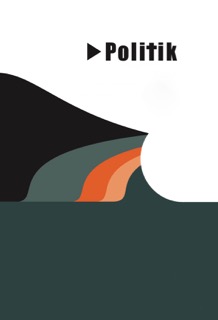Nej, det er ikke bare løgn
DOI:
https://doi.org/10.7146/politik.v21i1.106135Abstract
Begreber som ’Fake News’, misinformation og disinformation har fyldt en del i den politiske offentlighed i den seneste tid. Der er til stadighed en vis uklarhed omkring, hvad disse begreber dækker over, men én ting er sikkert: ’Fake News’ er falske og de skal bremses så sandheden kan vinde frem. Eller …? Problemet er nemlig, at det i bund og grund ikke er et spørgsmål om sandhed og falskhed, men i stedet er et spørgsmål om vildledning og ikke-vildledning.
References
Adler, J. (1997). Lying, Deceiving, or Falsely Implicating. Journal of Philosophy, årg. 94, s. 435-452.
Adriaans, P. (2012). Information. Stanford Encyclopedia of Philosophy. E. N. Zalta (red.), 1. udg. den 26. oktober 2012. (Fall 2013 Edition). Tilgængelig på: http://plato.stanford.edu/archives/fall2013/entries/information/
Budd, J.M. (2011). Meaning, truth, and information: prolegomena to a theory. Journal of Documentation, årg 67(1), s. 56-74.
Dretske, F. (1983 [1981]). Knowledge and the Flow of Information, 1. paperback udg. Cambridge: MIT Press.
Dretske, F. (2008). Epistemology and Information. I: P. Adriaans og
J. van Benthem (red.). Philosophy of Information, s. 29-47. Amsterdam og Oxford: Elsevier B. V.
Fallis, D. (2010). Lying and Deception. Philosophers’ Imprint, årg. 10(11)
Fallis, D. (2014). The Varieties of Disinformation. I: L. Floridi og P. Illari (red.). The Philosophy of Information Quality, s. 135-161. Cham: Springer.
Fallis, D. (2015). What is Disinformation? Library Trends, årg. 63(3) s. 401-426.
Fallis, D. (2017). Pointe fremført under paneldebat om ‘Fake News’ på konferencen ‘De-ceptiCon2017: Truth, Trust, and Tech’, 21-23. August 2017, Stanford University, Palo Alto, Californien, USA.
Floridi, L. (2005a). Is Semantic Information Meaningful Data? Philosophy and Phenomo-logical Research, årg. LXX(2), s. 351-370.
Floridi, L. (2005b). Semantic Conceptions of Information. Stanford Encyclopedia of Phi-losophy. E. N. Zalta (red). 1. udg. den 5. oktober 2005 (Spring 2013 Edition), Til-gængelig på: http://plato.stanford.edu/archives/spr2013/entries/information-semantic/
Floridi, L. (2011). The Philosophy of Information. Oxford Scholarship Online. Tilgængelig på: www.oxfordscholarship.com
Fox, C.J. (1983). Information and Misinformation. An Investigation of the Notions of Information, Misinformation, Informing, and Misinforming. Westport, CT og Lon-don: Greenwood Press.
Furner, J. (2004). Information Studies Without Information. Library Trends, årg. 52(3), s. 427-446.
Grice, P. (1967). Logic and Conversation. I: Studies in the Way of Words (1989), First Harvard University Press Paperback Edition (1991). Cambridge, MA, and London: Harvard University Pres, s. 22-40.
Hjøllund, N.-P.O. (2016). Begærets Subjekt og Informationskompetence. En re-installering af subjektet. Ph.d.-afhandling. Det Humanistiske Fakultet, Københavns Universitet.
Kumar, K.P.K. og Geethakumari, G. (2014). Detecting misinformation in online social networks using cognitive psychology. Human-centric Computing and Information Sciences, årg. 4(1).
Mai, J.-E. (2013). The quality and qualities of information. Journal of the American Soci-ety for Information Science and Technology, årg. 64(4), s. 675-688.
Mahon, J. (2008). The Definition of Lying and Deception. Stanford Encyclopedia of Phi-losophy. E. N. Zalta (red). 1. udg. den 21. februar 2008 (Winter 2016 Edition), Til-gængelig på: https://plato.stanford.edu/archives/win2016/entries/lying-definition/
PHEME (2014). About Pheme. Tilgængelig på: www.pheme.eu [Tilgået 27.03.14]
Robinson, L. og Bawden, D. (2014). Mind the Gab: Transitions Between Concepts of Information in Varied Domains. In F. Ibekwe-
SanJuan og Dousa, T.M. (red.). Theories of Information, Communication and Knowledge, s. 121-141. Studies in History and Philosophy of Science årg. 34. Dordrecht: Springer.
Scarantino, A. og Piccinini, G. (2010). Information Without Truth. Metaphilosophy, årg. 41(3), s. 313-330.
Shao, C, Ciampaglia, GL, Flammini, A og Menczer, F. (2016). Hoaxy: A Platform for Tracking Online Misinformation. Tilgængelig på: http://dx.doi.org/10.1145/2872518.2890098
Søe, S.O. (2016). The Urge to Detect, the Need to Clarify. Gricean Perspectives on In-formation, Misinformation, and Disinformation, Ph.d.-afhandling. Det Humanisti-ske Fakultet, Københavns Universitet.
Søe, S.O. (2018). Algorithmic detection of misinformation and disinformation: Gricean Perspectives. Journal of Documentation, årg. 74(2), s. 309-332.
Wardle, C. (2016). [M∣D]isinformation Reading List. First Draft News. Tilgængelig på: https://firstdraftnews.org/misinformation-reading-list/ [Tilgået 08.03.17]
Wardle, C. (2017). Fake news. It’s complicated. First Draft News. Tilgængelig på: https://firstdraftnews.org/fake-news-complicated/ [Tilgået 08.03.17]
Downloads
Published
How to Cite
Issue
Section
License
Forfattere, der publicerer deres værker via dette tidsskrift, accepterer følgende vilkår:
- Forfattere bevarer deres ophavsret og giver tidsskriftet ret til første publicering, samtidigt med at værket er omfattet af en Creative Commons Attribution-licens, der giver andre ret til at dele værket med en anerkendelse af værkets forfatter og første publicering i nærværende tidsskrift.
- Forfattere kan indgå flere separate kontraktlige aftaler om ikke-eksklusiv distribution af tidsskriftets publicerede version af værket (f.eks. sende det til et institutionslager eller udgive det i en bog), med en anerkendelse af værkets første publicering i nærværende tidsskrift.
- Forfattere har ret til og opfordres til at publicere deres værker online (f.eks. i institutionslagre eller på deres websted) forud for og under manuskriptprocessen, da dette kan føre til produktive udvekslinger, samt tidligere og større citater fra publicerede værker (se The Effect of Open Access).

